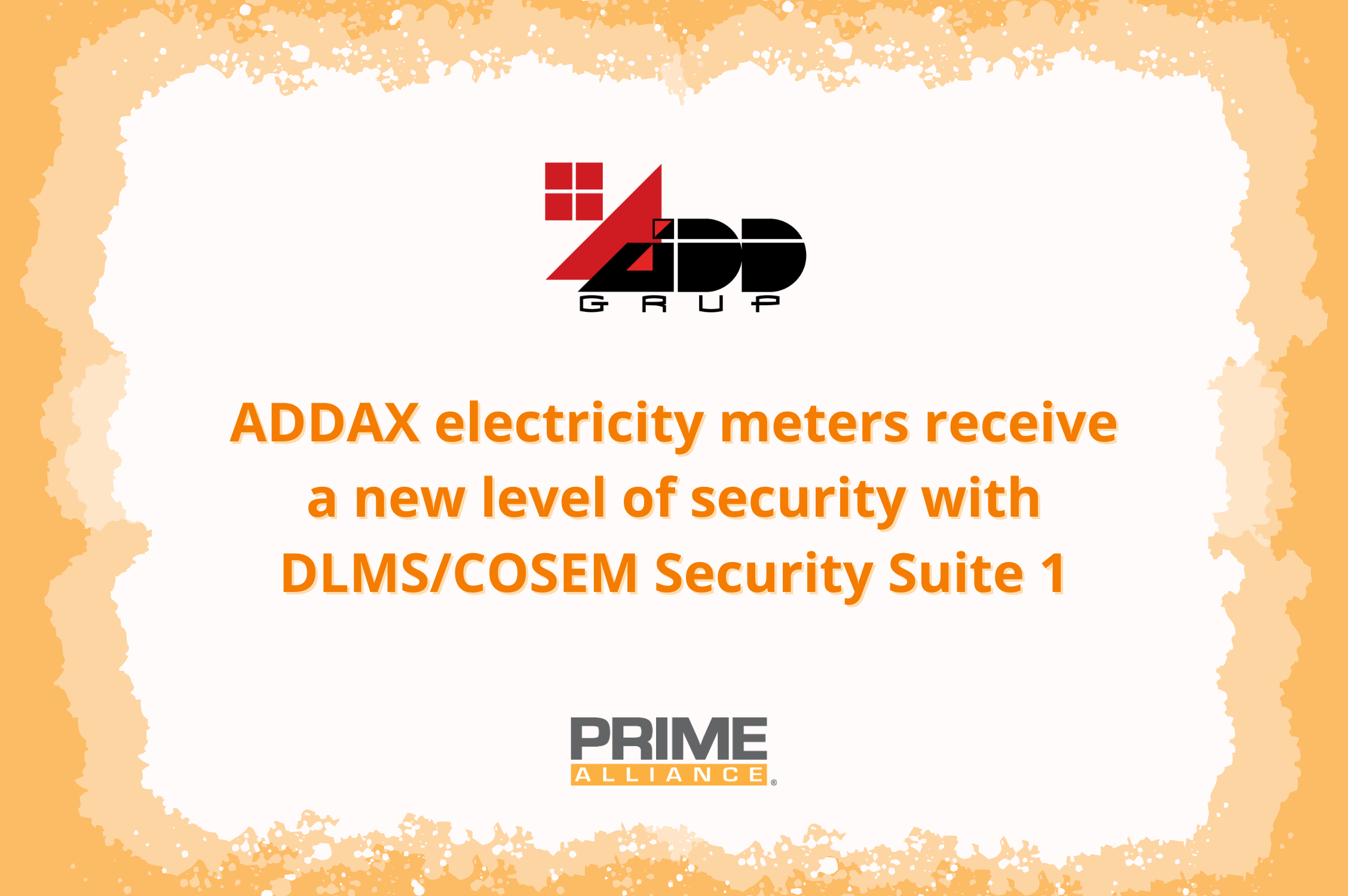 ADD GRUP announces the certification of DLMS/COSEM SS1 for ADDAX meters versions AD11 and AD13 based on PRIME 1.3.6 and PRIME 1.4. This significant security system upgrade is aimed at protecting against growing cyberattack threats and ensuring the reliability of energy resource management.
According to the European Union Agency for Cybersecurity (ENISA), smart grids and smart meters are among the most vulnerable components of energy infrastructure. One of their main risks is the possibility of remote access and control of devices through the network. Approximately 20-25% of all cyberattacks target critical infrastructure objects, including smart meters. Some security tests conducted by specialists revealed that up to 50% of the tested smart meters had vulnerabilities that could be exploited for cyberattacks.
What are the threats related to smart meter hacking?
Modern smart meters play a key role in energy resource management, but insufficient security at the HLS level can create the following vulnerabilities:
ADD GRUP announces the certification of DLMS/COSEM SS1 for ADDAX meters versions AD11 and AD13 based on PRIME 1.3.6 and PRIME 1.4. This significant security system upgrade is aimed at protecting against growing cyberattack threats and ensuring the reliability of energy resource management.
According to the European Union Agency for Cybersecurity (ENISA), smart grids and smart meters are among the most vulnerable components of energy infrastructure. One of their main risks is the possibility of remote access and control of devices through the network. Approximately 20-25% of all cyberattacks target critical infrastructure objects, including smart meters. Some security tests conducted by specialists revealed that up to 50% of the tested smart meters had vulnerabilities that could be exploited for cyberattacks.
What are the threats related to smart meter hacking?
Modern smart meters play a key role in energy resource management, but insufficient security at the HLS level can create the following vulnerabilities:
- Attackers can gain access to energy consumption data, which gives them access to confidential information about users’ lives, such as when people are home or away.
- Hackers can alter energy consumption data, leading to unjustified financial losses for energy companies and unfair distribution of costs for consumers.
- Hacking the meter management system can lead to large-scale power outages or disruption of critical infrastructure. For example, hackers could cause artificial grid overloads, leading to power failures across entire districts.
- Attackers could gain remote access to smart meters and control the devices connected to them.
- Falsified energy consumption data could lead to significant financial losses for DSO and provoke disputes with consumers.
- In the event of a large-scale hack of the energy system, power outages and disruptions to key infrastructures are possible, posing risks to national security.
- In case of data leaks or system malfunctions, companies may face sanctions and fines from regulatory authorities.
- All transmitted data is encrypted, preventing interception or falsification, protecting both users and energy operators from abuse.
- Authentication protocols ensure that only authorized users and devices can access the system, preventing unauthorized connections.
- Security Suite 1 provides strict control over who and how devices can be managed, preventing any attempts of remote hacking and tampering.
- Modern security systems are capable of detecting and preventing hacking attempts in real-time, minimizing risks and protecting the system from damage.

